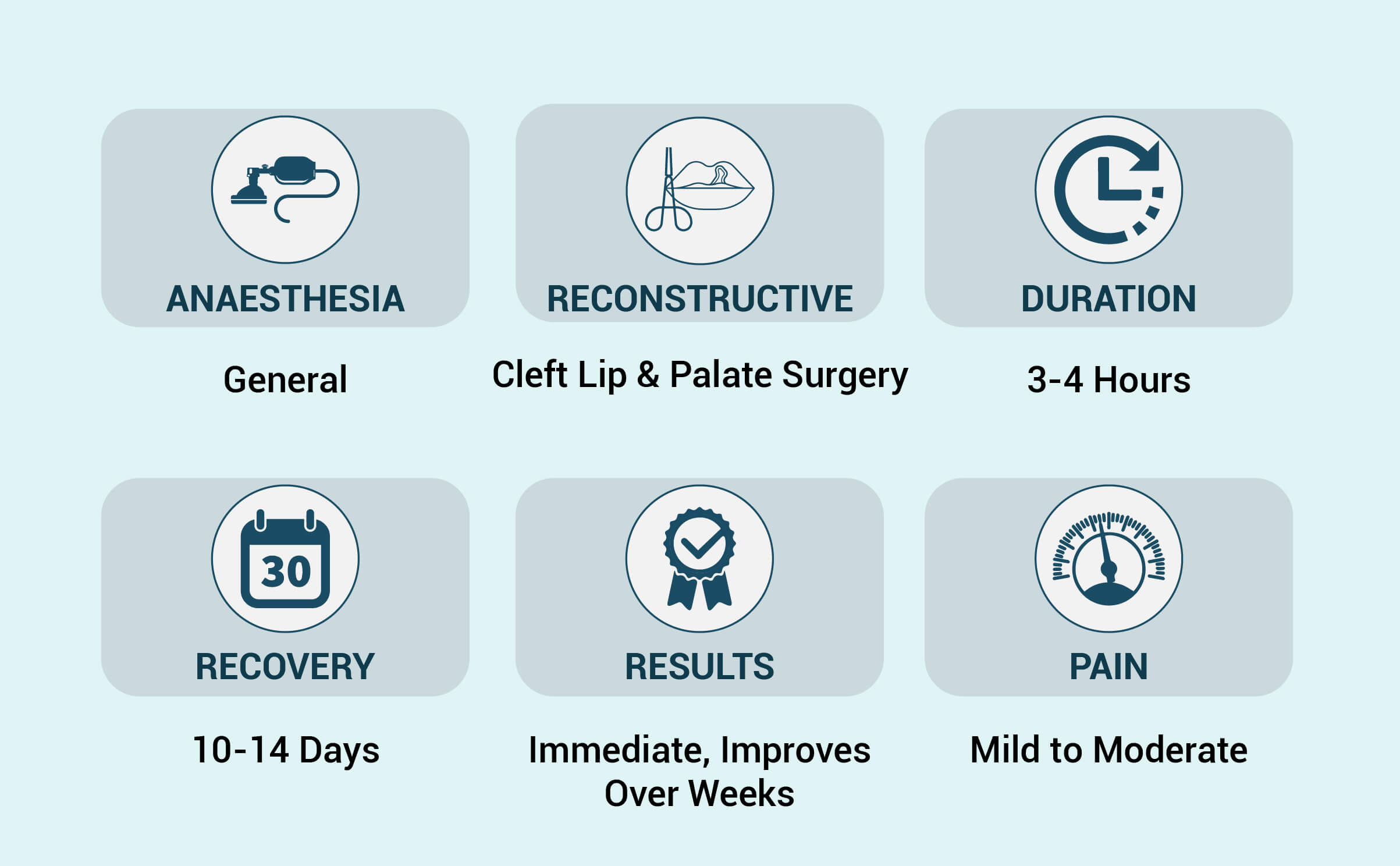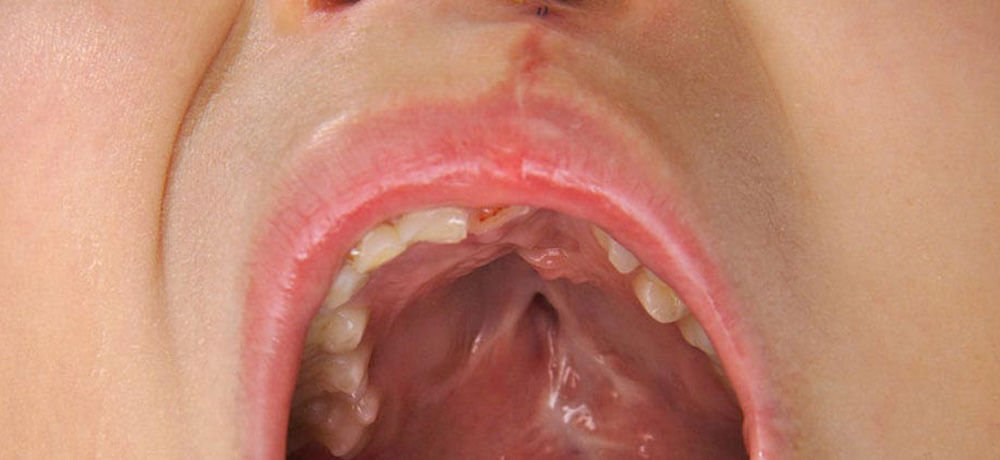Cleft Lip and Palate Surgery Doctor in Mumbai
Comestic Surgeon for Cleft Repair Surgery in Mumbai
What is Cleft?
It is a fissure or gap in facial features such as the nose, palate, or lips that causes a cleft. Deformities in the mother's womb during pregnancy are commonly responsible for this cleft. The clefts can be easily corrected with the help of surgery by the finest cleft palate surgeon in India. India's cleft palate treatment is very common, but it requires great skill on the part of the best cleft palate surgeon to ensure that the facial features are as ideal as possible.

What is for Cleft Lip

Cleft lip and cleft palate are birth defects that occur when a baby’s lip or mouth do not form properly during the pregnancy time. Children with a cleft lip also have a cleft palate.
What a Cleft Lip?
A cleft lip is characterized by one or two longitudinal abnormal fissures or splits in the upper lip. It can be a small opening in the lip or it can be a wide opening from the lip to the nose. When the two palatal shelves do not join together to form the entire palate, a cleft palate occurs. There are some children who do not join the squamous (front) and soft (back) portions of their palate. A child's palate may only be open in one part in some cases.
What a Cleft Palate?
A cleft palate happens if the tissue that makes up the roof of the mouth does not join together completely during pregnancy with different grade of opening.
Children with these ‘orofacial defects’ often have problems with feeding and speaking clearly or can have ear infections. They also might have hearing problems and problems with their teeth along with the un-aesthetic component related to the orofacial defect. Surgical repair of cleft palate and cleft lip can improve the look and the appearance of a child’s face and might also improve breathing, hearing, speaking and language development.
When to do surgery?
Surgery to repair a cleft lip usually occurs in the first few months of life and it is recommended in the first year of life. A cleft palate repair is recommended within the first 18 months of life. Additional surgical cosmetic procedures may be requested as children get older.
The initial surgery creates a functional palate, reduces the chances that fluid will develop in the middle ears and aids in the proper development of the teeth and facial bones. Children with a cleft palate may also need a bone graft when they are about 8 years old, to fill in the upper gum line so that it can support permanent teeth and stabilize the upper jaw. Once the permanent teeth grow in, braces are often needed to straighten the teeth. Additional cosmetic surgeries may be performed to improve the appearance of the lip and nose, close openings between the mouth and nose, help to breathe and stabilize and realign the jaw.
Results
Although cleft lip and cleft palate treatment may extend over several years and require several surgeries depending upon the involvement, most children affected by this condition can achieve normal appearance, speech and eating.
Due to the number of oral health and medical problems associated with a cleft lip or cleft palate, a team of doctors and other specialists is usually involved in the care of these children. Members of a cleft lip and palate team typically include not only plastic surgeons but also otolaryngologist, audiologist and speech therapist. Dr. Vinay Jacob and The Plastic Surgeons provide a co-ordinated approach to care for children with orofacial defects.
Prevention
While many cases of cleft lip and cleft palate cannot be prevented, consider these steps to increase your understanding or lower your risk:
Consider genetic counseling:If you have a family history of cleft lip and cleft palate, tell your doctor before you become pregnant. Your doctor may refer you to a genetic counselor who can help determine your risk of having children with cleft lip and cleft palate.
Take prenatal vitamins:If you are planning to get pregnant soon, ask your doctor if you should take prenatal vitamins.
Do not use tobacco or alcohol:Use of alcohol or tobacco during pregnancy increases the risk of having a baby with a birth defect.
 WhatsApp
WhatsApp